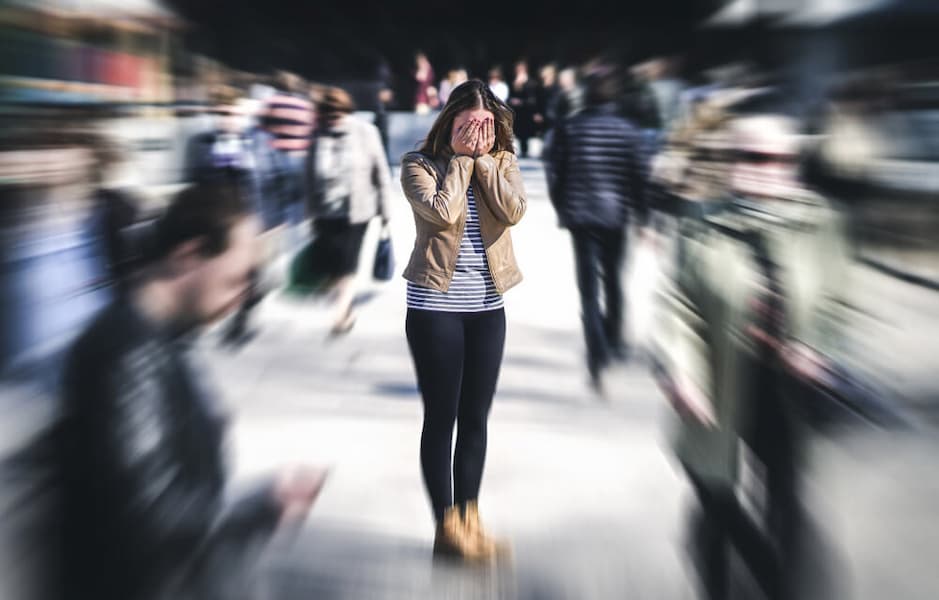Table of contents:
Anxiety is a normal healthy emotion. But when someone is experiencing intense fear and anxiety, which sets off physical reactions without apparent reason, it may be panic disorder. This disorder can be frightening and problematic, with uncomfortable symptoms that disrupt daily activities.
Below is a comprehensive review to help you understand what panic disorder is, its causes, types, symptoms, and treatment.

What is a Panic Disorder
A panic disorder is a mental disorder caused by excessive fear and anxiety, leading to sudden attacks. The condition triggers physical reactions without apparent cause or real danger. Panic attacks tend to happen anywhere and at any time without warning.
Types of Panic Disorders
Diagnosis of Panic Disorders
To be diagnosed, a patient must fit the criteria for a panic disorder; suffering from anxiety attacks at least once a month. These attacks have physical signs and cannot be attributed to other illnesses or mental disorders. The patient also experiences fear and anxiety about the attacks.
Causes of Panic Disorders
A combination of biological, environmental, and psychological factors play a significant role in panic attacks:
Risk Factors
Some factors believed to trigger the disorder are as follows:
Signs and Symptoms of Panic Disorder
Knowing the signs and symptoms of panic attacks help to determine if you, your friend, or a relative has panic disorder. Below are three classifications of symptoms and signs of panic attacks:
Physical Symptoms
Psychological Symptoms
Behavioral Symptoms
Treatment Options for Panic Disorders
Treatment of panic attacks should be comprehensive. Consider the main treatment options below:
Medical Treatment
Buspirone, antipsychotics, anticonvulsants, antidepressants, bupropion, benzodiazepines, and beta-blockers are commonly prescribed medications to help fight panic disorder symptoms. These medications also help the patient relax and feel relieved during the treatment process.
Psychotherapy
Psychotherapy involves counseling of a patient. The patient will learn to turn panic-causing or negative thoughts into positive ones. Psychotherapy also helps in practicing new relaxation strategies to conquer the underlying experiences and conflicts that may influence anxiety and panic.
Inpatient Treatment vs. Outpatient Treatment
Inpatient treatment is recommended for patients with a severe panic disorder, where they will stay under doctor supervision 24/7. Inpatient involves medications, clinical assessments, personal therapy, and group therapies.
Outpatient treatment is great for patients with mild effects of panic attacks. Patients can visit the clinic per the specialist's recommendation for evening and daytime individual and group therapies.
Home Treatment for Panic Attacks — is It Possible
Panic attacks can happen randomly; a patient should be working with a professional therapist to help treat the cause of the attacks. Home treatment is impossible without working with a specialist.
Process and Stages of Panic Disorder Treatment in VipVorobjev Clinic
Only a qualified doctor can diagnose someone as having a panic disorder condition. At VipVorobjev Clinic, we have all it takes from diagnosing to treating a panic disorder. Our process starts by conducting a complete physical exam on the patient. The patient will then undergo a psychological evaluation involving symptoms, stressful situations, family history, alcohol/substance use, and relationship problems.
:After the examination, the type of treatment is determined and a therapy plan is developed. After the course of therapy, the patient attends aftercare programs to prevent relapse.
Is It Possible to Get Rid of a Panic Disorder on Your Own
Panic disorder is a dangerous mental disease that should be treated and taken care of by a professional doctor. The disorder takes control of your mind/life; treating it on your own might put you in riskier situations.
Effectiveness of Panic Disorder Treatment
Complex treatment of a panic disorder has been shown to be highly effective. Psychotherapy can solve the problems that cause panic and medication makes the treatment process more comfortable and quicker. Patient adherence to treatment plays an important role in effectiveness.
Average Duration of Treatment for Panic Disorder
Treatment typically ranges from two weeks to six months. The length of time depends on the type of disorder, treatment type, and how the patient responds to treatment.
Cost of Panic Disorder Treatment
The cost is based on the length and type of the prescribed treatment. The cost of treatment starts at 5,500 €.
Doctors
Meet the team of professionals at the VIP Vorobjev Clinic:
Patents and Certificates
Your healing journey starts immediately after visiting our clinic. Feel confident in our expert’s hands as we are Certified, Registered Alcohol, Drug and Addiction (DAACC) specialists. Our experienced team has tackled and conquered this situation before; they are ready to receive you and help you fight your panic disorder, helping you return to daily life.

